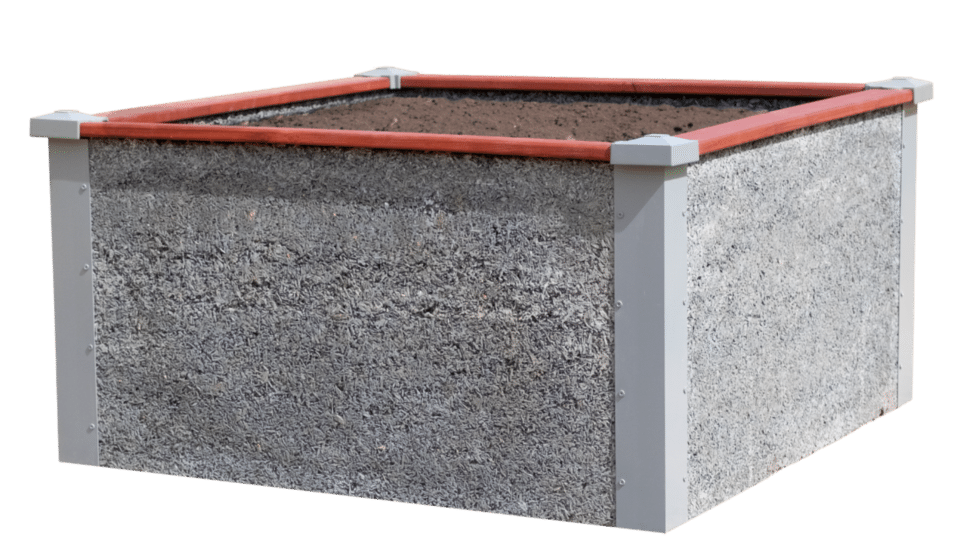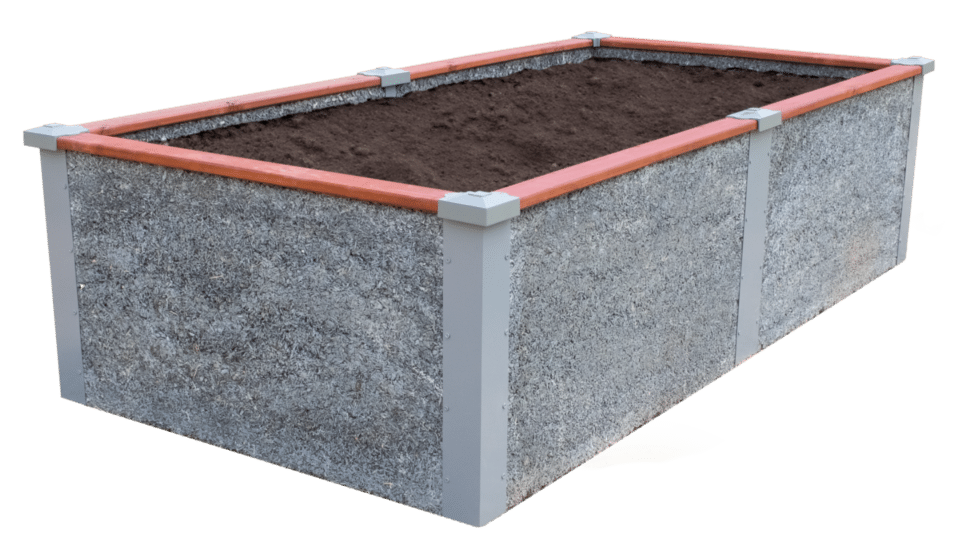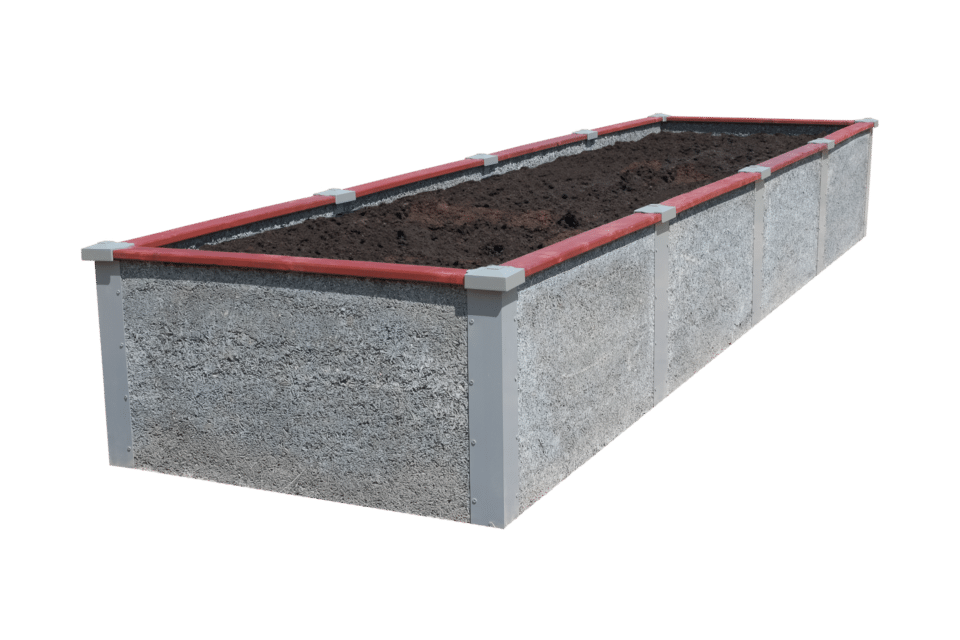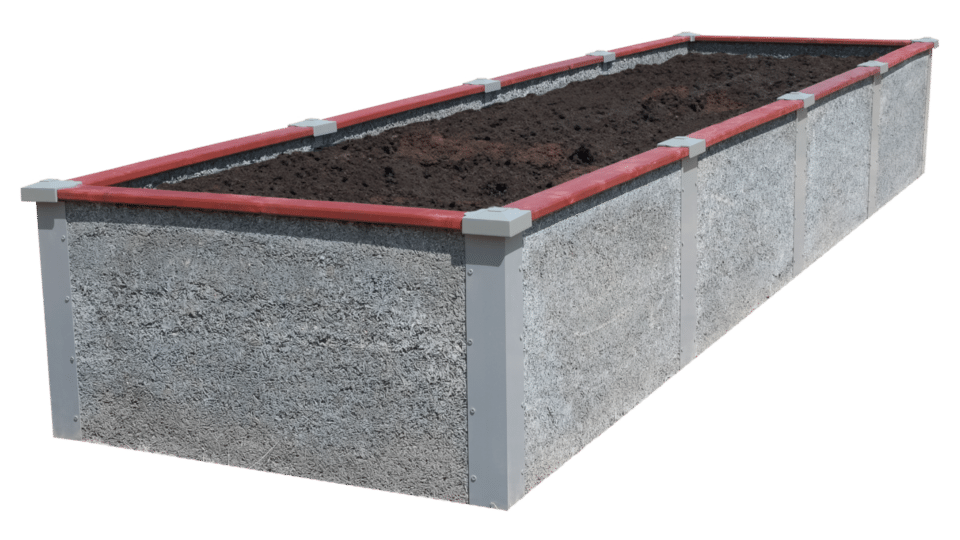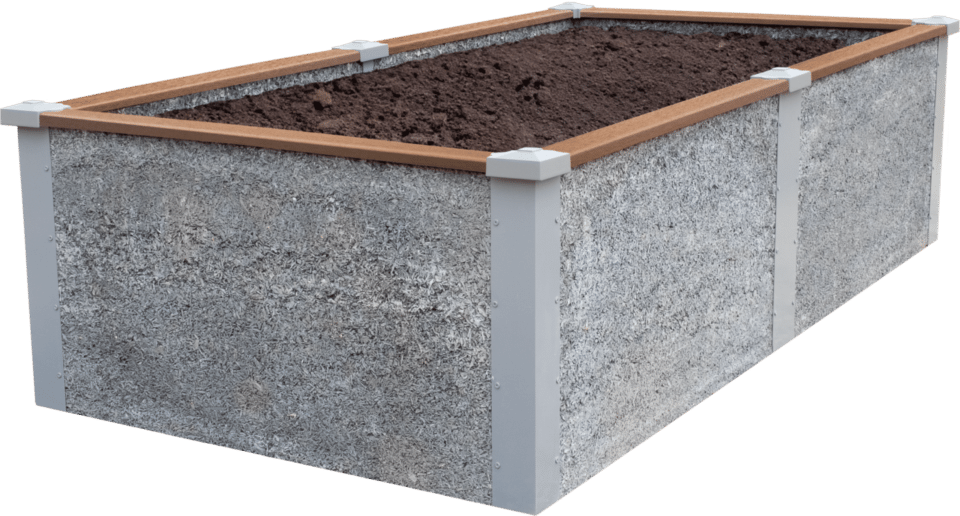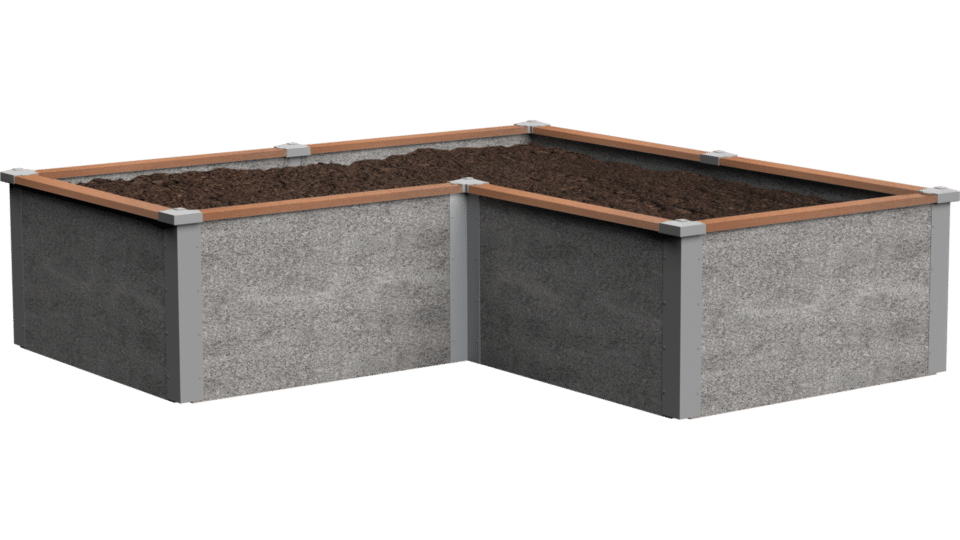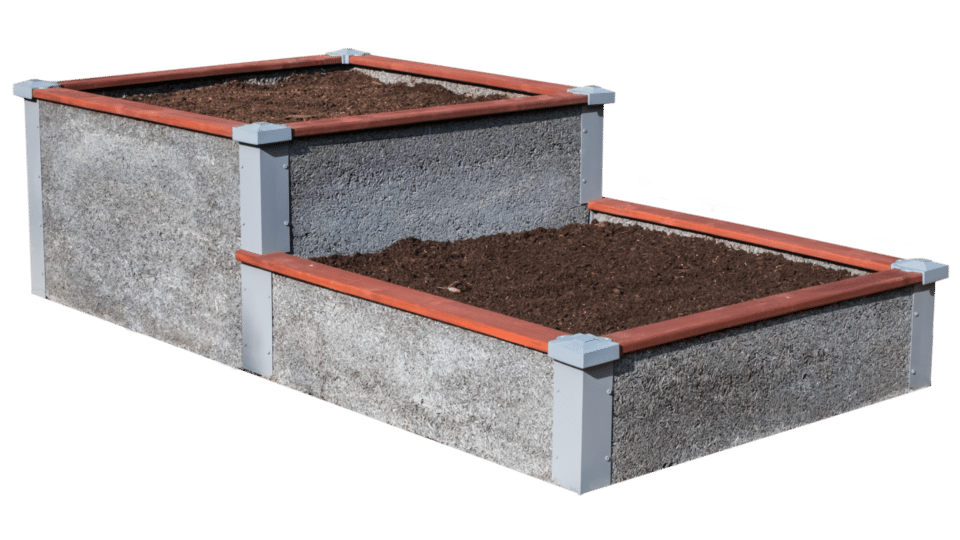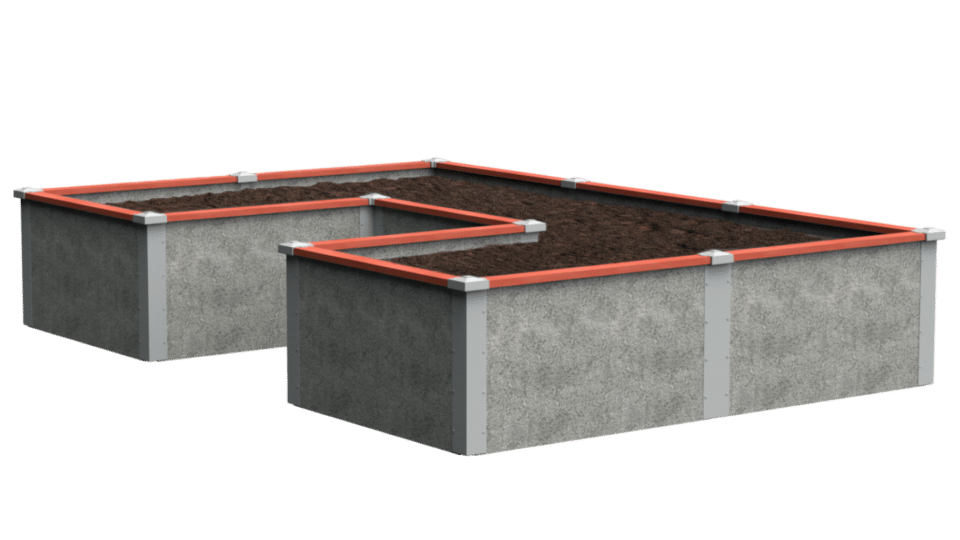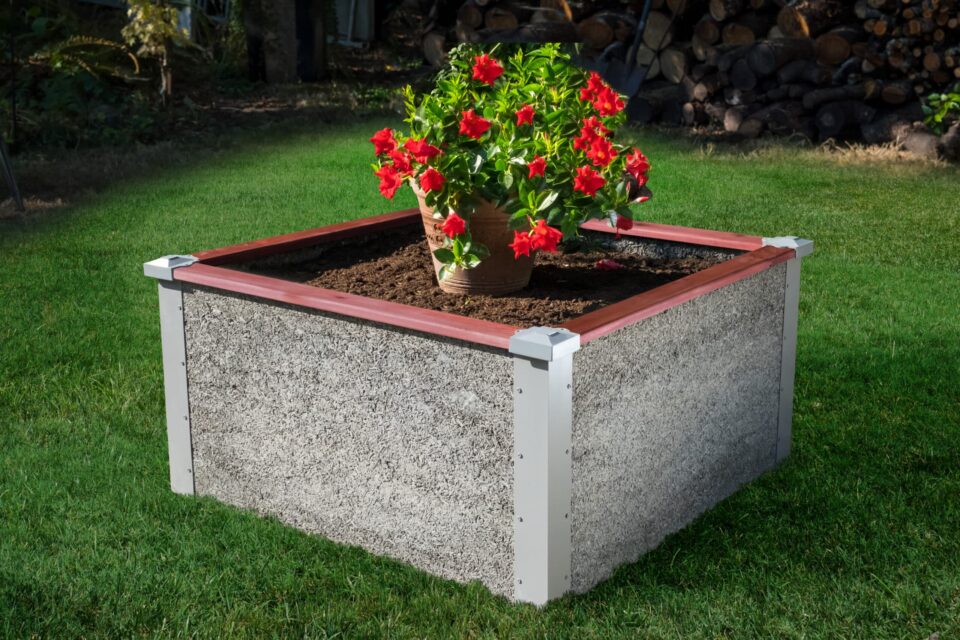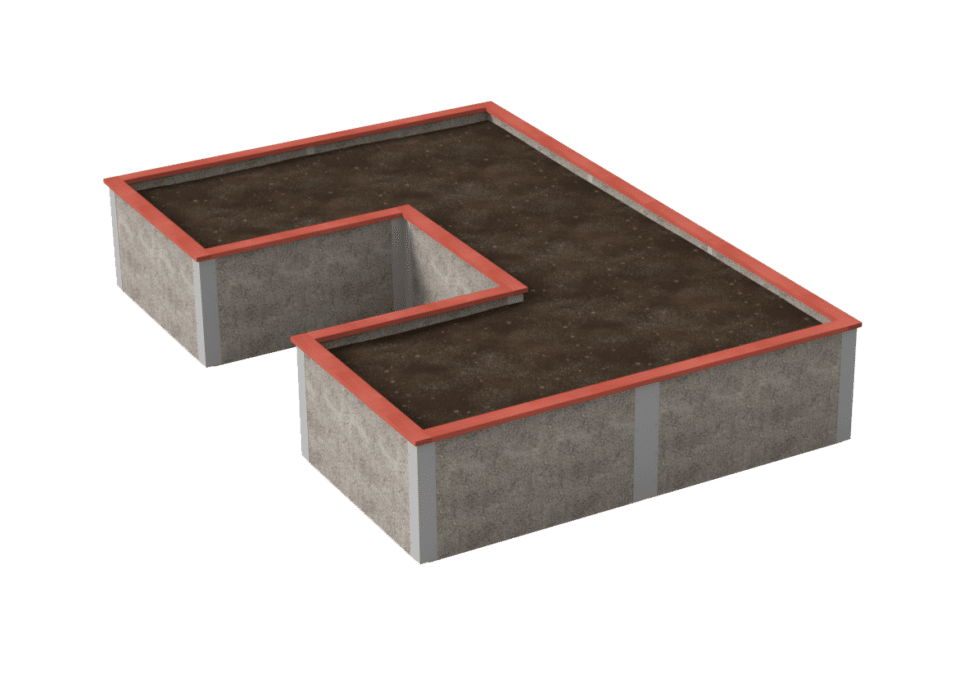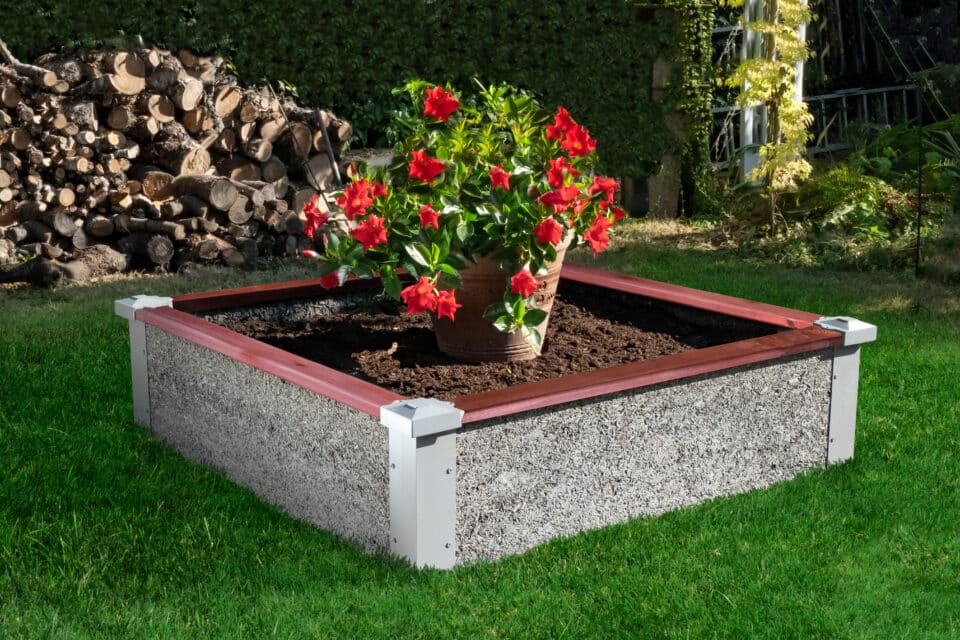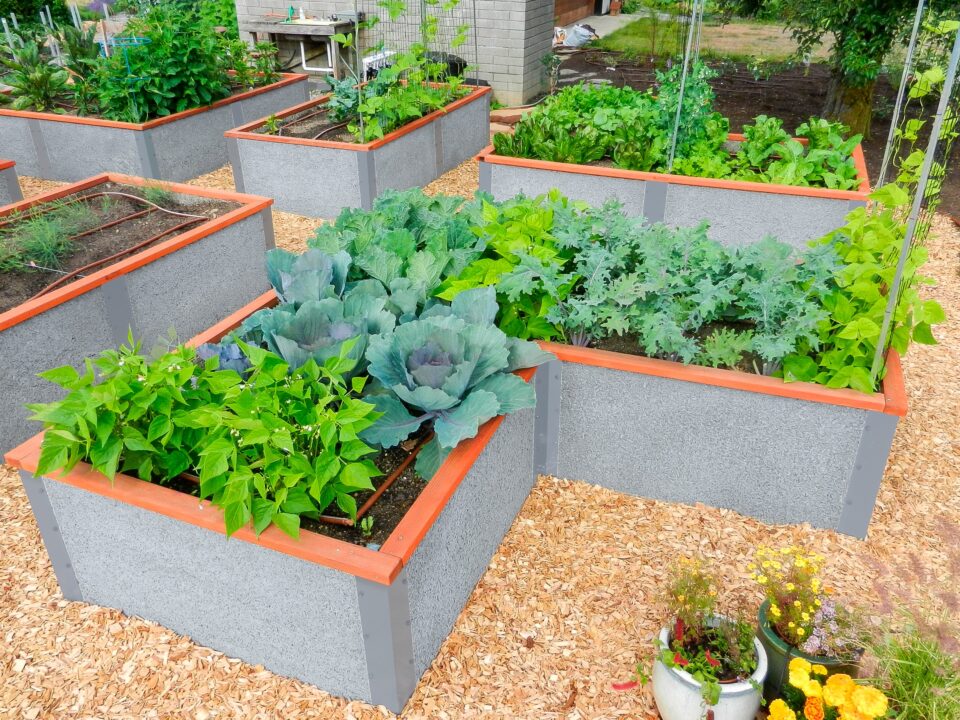Community garden beds
Commercial grade, non-toxic, raised garden bed kits for communities with discount pricing
The BEST RAISED GARDEN BED KIT for Community Garden Beds!
Community Gardens Choose Durable GreenBed Because:
- Durability -20-25 year life, no rot, no breakdown. Low maintenance! You won’t have to replace in a couple of years, and your community garden beds won’t look broken down.
- Clean, attractive looking.
- Sizes – 4×12 foot beds; 4×8 foot beds at 1′ and 2′ heights meet the needs of school and community gardens. We can also create custom beds in longer lengths.
- Easy to assemble. Volunteer friendly. You just need level ground.
- Accessibility – Elevated heights make the beds accessible for all.
- Non-Toxic – All organic materials and natural mineralization make them safe for vegetables.
- High Yield – Permeable, so air flows to and from the soil, leading to great yields.
- Slugs hate them.
- Made in the USA
Shop Durable GreenBed Raised Garden Bed kits
-
Rectangular Raised Garden Bed Kit
$471.00 – $2,085.00Price range: $471.00 through $2,085.00 -
L-Shaped Raised Garden Bed Kit
$786.00 – $1,305.00Price range: $786.00 through $1,305.00 -
4’x8’ Stepped Raised Garden Bed Kit
$865.00 – $1,073.00Price range: $865.00 through $1,073.00 -
U-Shaped Raised Garden Bed Kit
$1,199.00 – $2,446.00Price range: $1,199.00 through $2,446.00
Raised Garden Bed Kits, for Community Gardens
Durable GreenBed kits are making a difference in sustainable communities & urban gardens.
Our Durable Greenbed Raised Garden Bed kits have been used in dozens of school and community gardens.
Ask us about additional discounts on Raised Garden Bed Kits for your community garden beds
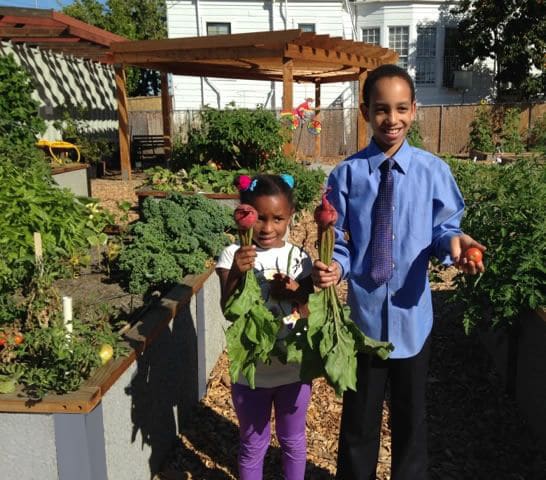
Here at Durable GreenBeds, we could not be more pleased that the use of our sustainable raised garden beds is bearing fruit and veggies for so many worthy organizations, while providing a sense of community and connection to the environment.
Community Gardens
We are excited to support the urban agriculture and healthy living movement by offering Durable GreenBed at a deep discount for community gardens. Our non-toxic beds are perfect for raised vegetable gardens. Durable GreenBed garden kits are now in use in community gardens across the country. These gardens bring people together, get kids outdoors, improve neighborhood quality of life, and help transform communities

How to build a Community Garden
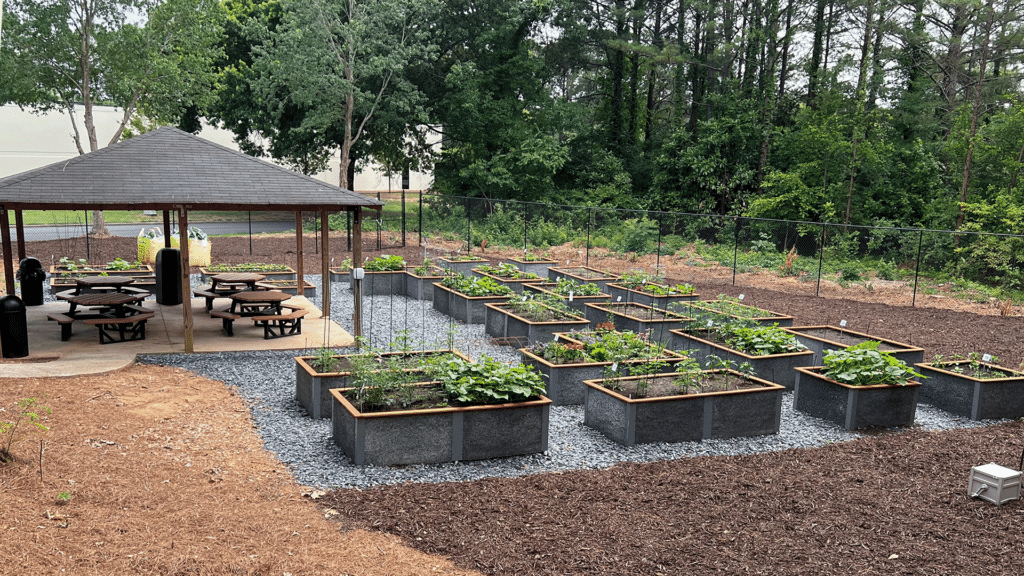
Church Gardens
Churches nationwide are embracing GreenBed gardens in an effort to give back, donating harvests to soup kitchens and those in need. The gardens bring volunteers and community members together to collaborate on a fun and “fruitful” hobby, and to have a positive lasting impact on the community.
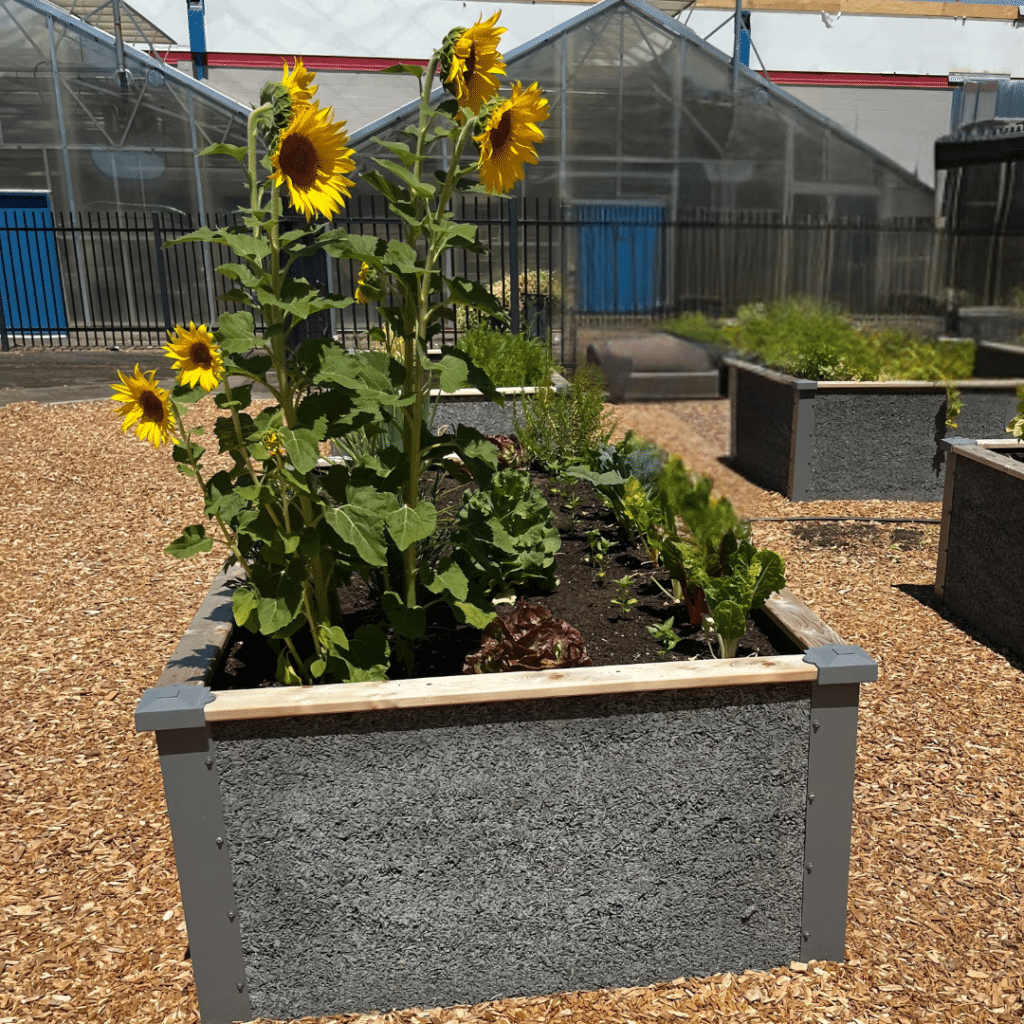
School Gardens
At the school environment, the GreenBed garden provides a special hands-on dynamic to learning that is unparalleled. Not only does the school garden help teach students the science of plant-life and sustainability, it provides them with the opportunity to apply the knowledge learned in the classroom in a practical and engaging way – in their own living laboratory. The patience and focus that gardening requires, as well at the opportunity to experiment and nurture, teaches invaluable skill sets to students in all age groups
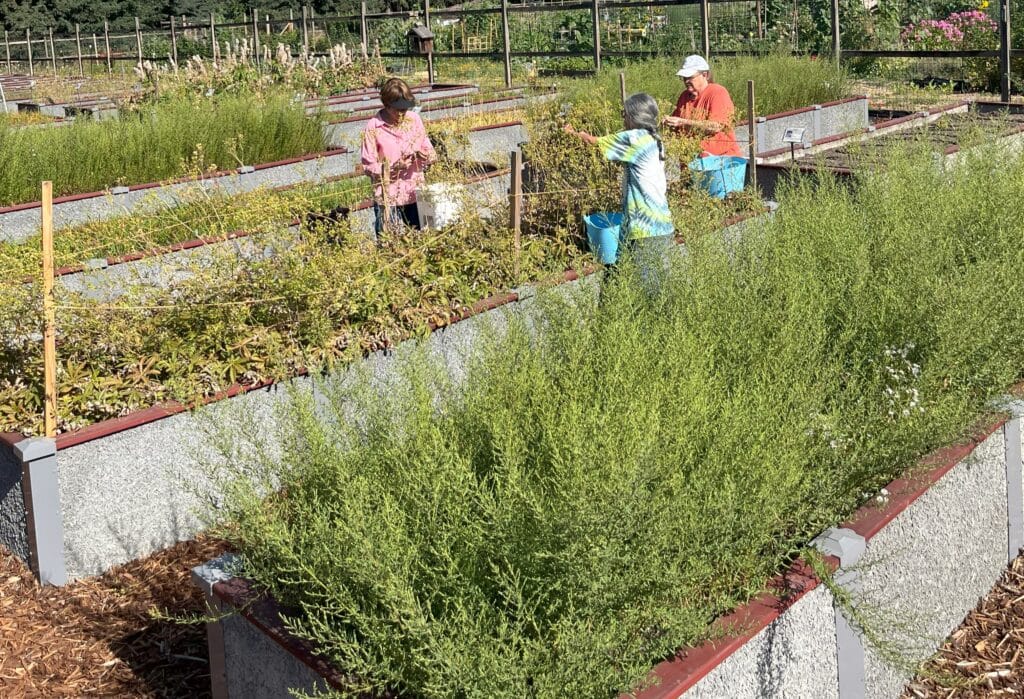
Senior Gardens
We enthusiastically support the growth of gardening opportunities at facilities for seniors across the US and Canada, offering greatly discounted pricing to facilities that wish to purchase GreenBed raised bed garden kits. The two-foot raised GreenBed makes the hobby of gardening accessible for seniors and disabled gardeners, and that’s why they are perfect addition to these communities and their members.
Having a Community Garden Makes Seniors Feel At Home
Durable GreenBed is passionate about giving back
We are proud to be members of a terrific organization that is promoting community gardening across America and Canada. It is the American Community Gardening Association (ACGA).
About American Community Gardening Association
The Mission of the American Community Gardening Association is to build community by increasing and enhancing community gardening and greening across the United States and Canada. The American Community Gardening Association (ACGA) is a bi-national nonprofit membership organization of professionals, volunteers and supporters of community greening in urban and rural communities. The Association recognizes that community gardening improves people’s quality of life by providing a catalyst for neighborhood and community development, stimulating social interaction, encouraging self-reliance, beautifying neighborhoods, producing nutritious food, reducing family food budgets, conserving resources and creating opportunities for recreation, exercise, therapy and education.


